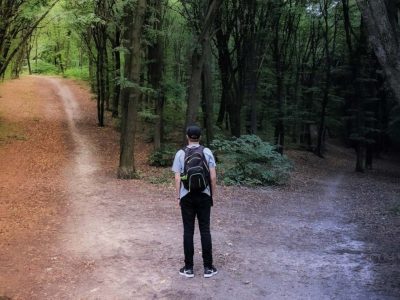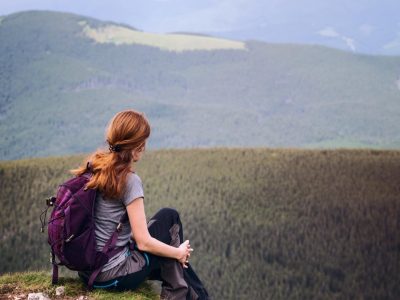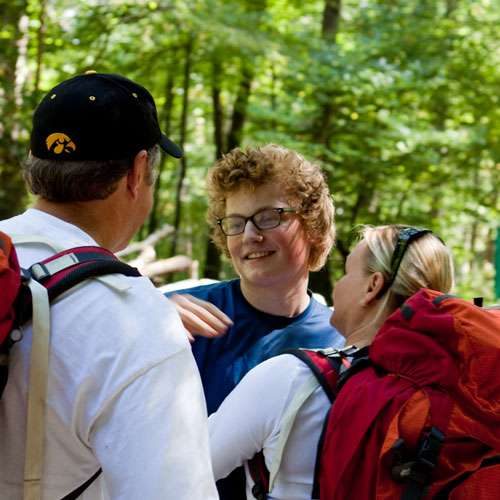Adolescence is a significant period of emotional development, where the therapeutic needs of middle schoolers are different from the needs of high schoolers. Teachers understand this and apply different techniques in the classrooms, so why shouldn’t wilderness programs?
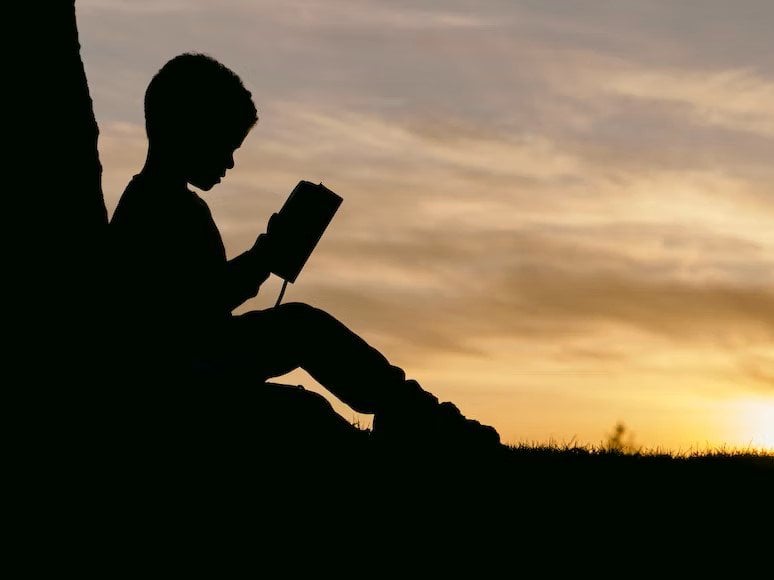
Currently, Trails Carolina is the only wilderness therapy program for middle school students in the country with single-gender middle school programming year-round. We implement a variety of unique strategies with our child and adolescent groups to better meet their developmental needs.
Through these methods, our licensed therapists help children identify distorted thinking patterns that motivate the child’s behavior. Then, the child’s therapist helps the child develop new coping skills and communication skills to improve relationships with family members and overall well-being.
Understanding What Makes Therapy For Kids Unique
Therapy for middle school aged kids (10-13) can be a valuable resource for addressing a wide range of mental health concerns and behavioral disorders and promoting emotional well-being. Adolescence is a time of significant growth and change, and many middle school students may struggle with issues such as anxiety, depression, ADHD, social isolation, or family conflict.
Adolescent therapy can provide a safe and supportive space for kids to explore these challenges, build coping skills, and develop greater self-awareness and resilience. Depending on their specific needs, child therapy may involve a variety of approaches such as cognitive behavior therapy, dialectical behavior therapy, talk therapy, art therapy, child centered play therapy, parent child interaction therapy or family therapy.
By working collaboratively with a trained mental health professional, middle school students can develop the tools and strategies they need to navigate this important time in their lives and build a strong foundation for their future well-being.
Focused, Appropriate Programming For Age-Specific Groups
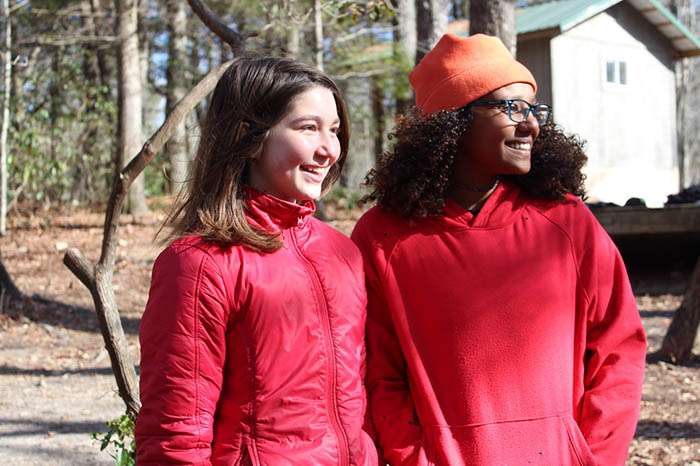
At Trails Carolina, we provide a healthy environment for a variety of ages to receive treatment. We believe that segmenting groups by the child’s age and gender helps students learn to build positive relationships among their own peers. This makes the transition back to traditional school settings easier for young people. It helps our students learn how to interact and build healthy connections for life.
Field staff who work with pre-teen students work solely with this age group. They receive pre-teen specific training focused on how middle school students’ brains work to help them better understand adolescent psychology and which therapeutic approaches will work with this group. These trainings focus on attachment, universal human needs, and love languages so that staff are prepared to support students on their healing journey.
We know middle schoolers have a hard time sitting still and opening up while contained in an office or even sitting as a group. In wilderness therapy programs, group therapy occurs organically while engaging in other activities. This dynamic form of therapy also encourages students to be more in touch with what they’re feeling in their bodies, which gives them more insight into their thoughts and impulses.
Using A Creative Holistic Approach
We acknowledge that this age group is less responsive to traditional psychoeducation than our older students, who are better at processing this information based on their emotional maturity. As a result, we focus more on the bigger picture of mental health treatment than teaching these kids how to manage symptoms of their mental health struggles.
Students and parents take love language assessments, in virtual or online therapy sessions facilitated by their therapist during the therapeutic process. These are quizzes that help families better understand how each member of their family gives and receives love. This helps them learn how to communicate more effectively with one another.
Another aspect of the new phase system for middle schoolers is a focus on universal human needs.
According to primary therapist, Amanda Mojave, LPC, “If a student is exhibiting a challenging behavior, instead of trying to eradicate these behaviors, we want students, staff, and parents to put on their detective hats and ask ‘what need are we trying to get met?’
“For example, one universal human need that we see frequently is the need for certainty. If a student is asking a question repeatedly, instead of trying to simply put a stop to the badgering, we invite everyone to be curious,” describes Mojave. “When we establish that the student is trying to get the need for certainty met, we can help foster an environment where they are learning how to meet their needs in a prosocial way.”
Prioritizing Attachment and Family Relationships
Phase work for middle school students is focused on attachments and relationships. Many children at Trails struggle in their relationships with others. New middle school programming helps students repair relationships with families and peers.
“Part of the attachment-focused work we’re doing with the middle school group is helping train staff to better understand what it means to be a secure base for students,” says Mojave. “We are using recent research to approach attachment-related behaviors with curiosity and playfulness, which is developmentally appropriate for pre-teens. We are also teaching parents about this too. It helps students feel safe in their relationships and allows them to make changes.”
Increased Parent Communication And Involvement
Another addition to middle school programming is a parent-child phone call during the process. With older age groups, many of the students we work with have come to Trails Carolina after getting into a lot of arguments at home and being defiant.
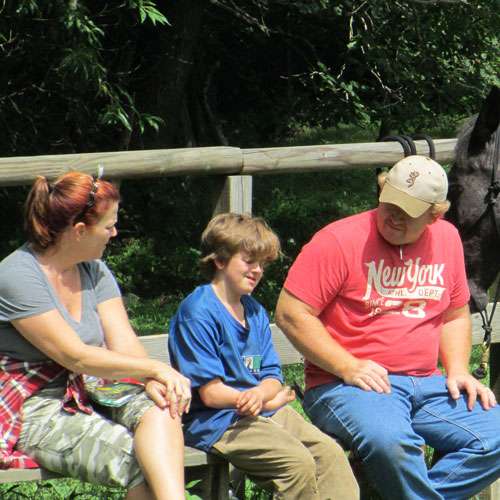
Compared to younger kids and teens, older students may benefit from more space from their parents. Because of this, parents participate in a parallel therapeutic process through parent calls, while communication with their child is limited to letter writing the first few weeks they are there. As they begin to repair their relationships, families interact through family workshops and professional counseling services or family therapy sessions towards the end of their stay at Trails Carolina.
For younger students, parent-child phone calls are extremely beneficial in preparing for graduation and the next steps after Trails. We are inviting the family to utilize their skills in real time with one another. This group of students is also more likely to be overly dependent on their parents and struggle with homesickness, which can get in the way of them being able to focus on themselves while in the program.
Staff at Trails Carolina are extremely passionate about working with this age group, which is key to the success of our students.
Accredited Academics To Stay On Track
Parents of middle school students may worry that their child will fall behind in academics while they are attending wilderness therapy. Unlike other wilderness programs where academics are only “in the field”, Trails Carolina believes in the value of a more traditional environment back at base camp. Academics are often where students struggle and become frustrated, so significant progress can be made. It is also beneficial that students practice in a classroom environment so they are more easily able to adapt to their home classroom after their time at Trails.
Accredited By Congia
Trails offers a Cognia (formerly known as AdvancEd (SACS)) accredited academic program, enabling students to transfer credits back home. Plus, there are proven benefits to bringing students into a more traditional classroom setting while in the therapeutic environment. Adding a personalized classroom environment helps our students achieve success and practice their new skills in a school setting.
Earn School Credit And Learn Wilderness Skills
The academic curriculum of our wilderness school is integrated into the overall therapeutic approach of Trails, allowing each student to see learning with “new eyes” and practice the strategies they’ve learned in the wilderness and other environments. Many of our students have struggled with school refusal, poor grades, or other disciplinary issues.
Sometimes this academic struggle is a reflection of other behavioral issues, poor effort, or a curriculum ill-suited to their learning style. We work closely with each child to help them achieve academic success. Our goal is to meet the child “where they are at” in their academic journey and instill an interest in growth and development.
Wilderness Therapy For Kids
Wilderness therapy can be a powerful tool for healing for middle school students. Being in nature presents a sense of connectedness, purpose, and belonging. In wilderness therapy programs, students spend time reflecting on past choices, exploring future possibilities, and discovering the lessons only nature can teach.
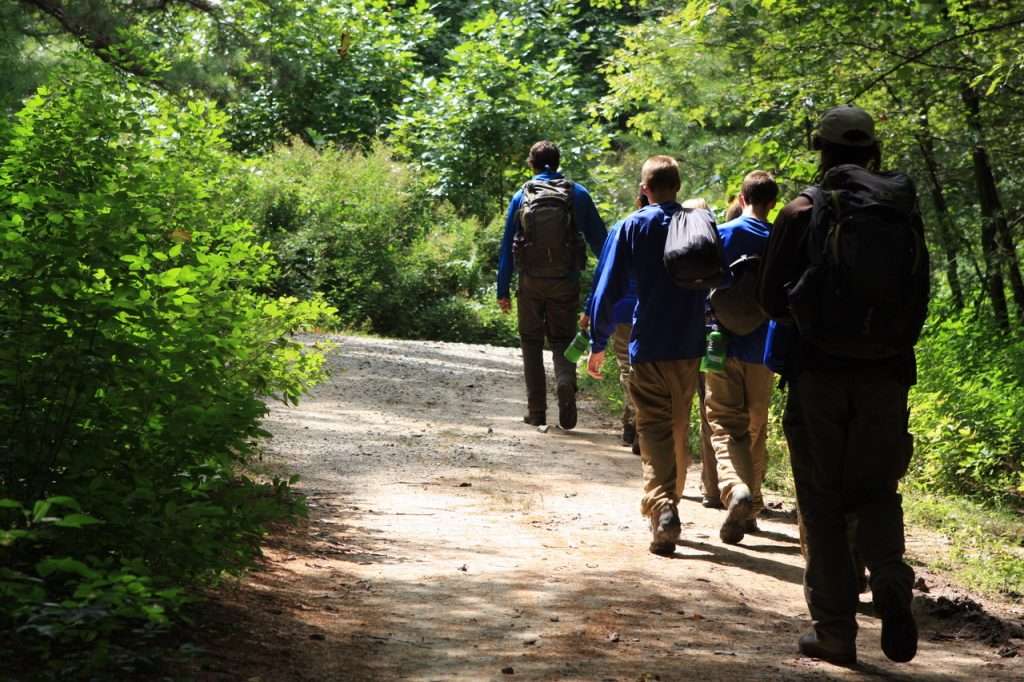
Unexpected Growth Opportunities In The Wilderness
While the wilderness provides many unexpected opportunities for learning and growth, the natural consequences of negative and positive behavior are very predictable. Rather than trying to reward or punish individuals for their behaviors, nature teaches powerful and life-changing lessons absent any judgment. Over time, students in our wilderness therapy programs begin to understand these consequences and take ownership of their actions, leading to greater autonomy and long-term success.
Learning is far more effective in the wilderness. As struggles are encountered, Trails’ trained staff are there to help direct the process and offer insights to students that may not think of on their own. Furthermore, learning alongside peers creates a shared challenge, offering additional learning benefits, support and the opportunity for younger children to practice positive social skills. These same skills seamlessly translate into other group settings, such as the classroom or family unit.
The Mental And Physical Benefits Of Nature
Spending time in nature can also be beneficial for middle schooler’s physical and mental health conditions as well. Regular exercise can help to alleviate the symptoms of anxiety and depression, dramatically improve self-esteem, and encourage an overall positive outlook.
For this reason, outdoor exercise is a daily part of Trails Carolina wilderness therapy programs. While at Trails, students enjoy hikes, equine activities, yoga, and a variety of experiential activities. Trails students push their physical limits while they learn about themselves and gain increased confidence
Trails Carolina Can Help
Middle school-aged children need concrete experiences and teachable moments that help them to practice the critical thinking, problem-solving, and conflict resolution skills they’ll need to thrive as they enter their teenage years and young adulthood. We have designed our programming to empower boys to exercise agency for their needs and accountability for their choices. This improves participation in their relationships with family, peers, and school.
Trails Carolina is one of the nation’s leading wilderness therapy programs for middle school-aged adolescents and high school-aged teens. We offer wilderness therapy for boys 10-13 and wilderness therapy for girls 10-13 who are struggling with mental health conditions, behavioral challenges, and negative emotions. Our program uses person centered therapy, adventure-based play therapy, and child therapy techniques to help our younger students gain a new sense of self-awareness, confidence, and independence.
The skills that our students learn throughout the wilderness program offer long-term benefits towards their ability to successfully self-navigate in the real world. By removing teens from their fast-paced environment into a safe, nurturing, and peaceful environment, they are able to focus on improving and reflecting upon their behavior.
Contact us at 800-975-7303 to learn more about our wilderness therapy program and our mental health services for struggling middle schoolers. We can help your family today!
Get started today
Contact us today to learn how Trails Carolina can help your family
Trails saved my daughter’s life. Amanda is an amazing human and a brilliant therapist. I am so grateful to her, Science Steve, and the other wonderful people who could reach my daughter at a time when I could not.
Margot Lowman August 2022
Great life changing experience for our son. After becoming addicted to gaming during covid he was very depressed. At Trails he experienced the wilderness, Science Steve, learning survival skills and top notch therapy and support etc… I highly recommend! This gave our son and our family a renewed family bond full of love and excitement about his bright future.
Winnifred Wilson July 2022
Outstanding clinical work and superb staff! There’s a great culture at this company and it shows with how they engage with families/clients.
Kristin Brace June 2022
Discover If Trails Is The Right Program For Your Child
Take our short online assessment and help us better understand how we can help your family.

